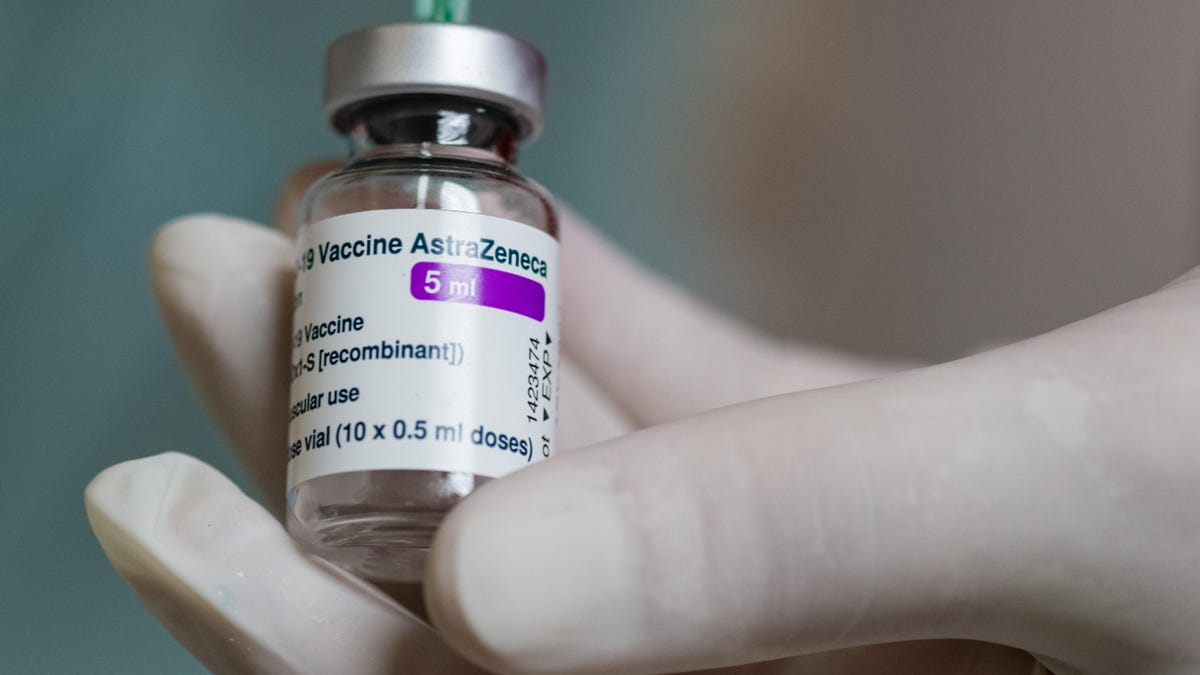'Overly cautious': No evidence AstraZeneca's COVID-19 vaccine linked to blood clots
A handful of European nations pause rollout of the Oxford-AstraZeneca vaccine while authorities investigate possible clotting issues.

A host of European countries have paused the rollout of the AstraZeneca vaccine to investigate blood clots in those who had been vaccinated.
Though there is no evidence that the COVID-19 vaccine developed by Oxford University and AstraZeneca increases the risk of blood clots, a handful of European nations announced Monday they will pause their rollout while the European Medicines Agency (EMA) investigates.
The pause in France, Germany, Italy and Spain comes less than a week after Austria and other EU nations stopped administering AstraZeneca vaccinations from a particular batch of 1 million doses.
The death of a vaccinated patient in Norway and another in Denmark on March 11 spurred the temporary halt. But in a statement released on March 15, the EMA maintainsthe "benefits of the AstraZeneca vaccine in preventing COVID-19, with its associated risk of hospitalisation and death, outweigh the risks of side effects."
That message was reiterated during a press conference on Tuesday by Emer Cooke, executive director of the EMA.
"A situation like this is not unexpected. When you vaccinate millions of people it's inevitable that you have rare or serious incidents of illness that occur after vaccination," said Cooke, adding that, at present, there's no indication the vaccine has caused blood clots.
The expert consensus is on the side of the EMA, with the World Health Organization, Australia's Therapeutic Goods Administration, and health scientists and immunization experts contacted by CNET suggesting there's not enough evidence to show an increase in "thromboembolic" events, which include deep vein thrombosis, clots and pulmonary embolisms.
"It is my belief that the various regulating bodies who have temporarily halted the AstraZeneca vaccine rollout are being overly cautious," said Adrian Esterman, an epidemiologist at the University of South Australia.
Esterman notes there have only been 30 reports of blood clotting issues in almost 5 million vaccinations, which is "no different" from the rate you expect in an unvaccinated population. In addition, Esterman notes there's "not a biological plausible reason why the vaccine would cause blood clots."
Infections are surging in some European nations, including Italy, which has returned to lockdowns to curb the spread of COVID-19, and France, which is seeing its highest levels of hospitalization since November.
In a press release on Sunday, AstraZeneca offered reassurance on its vaccine's safety. "We are going beyond the standard practices for safety monitoring of licensed medicines in reporting vaccine events, to ensure public safety," said Ann Taylor, AstraZeneca's chief medical officer.
During trials, the AstraZeneca vaccine experienced one temporary pause, while researchers investigated a severe adverse event in a trial participant. A safety review confirmed the event was not related to the vaccine. The vaccine has been approved for use by regulators in the UK, Australia, Canada, the European Union, South Korea and Brazil with emergency authorization in more than a dozen other countries. It has received emergency use listing by the WHO, but hasn't been approved for use in the US.
The investigations are ongoing and recommendations could change. The WHO is scheduled to conduct its own safety meeting regarding the vaccine on Tuesday, while the EMA's safety committee is expected to convene an emergency meeting on Thursday to "conclude on the information gathered and any further actions that may need to be taken."
While the events need to be investigated, there are suggestions a pause may be an overreaction that could harm the public trust in the vaccine.
"We would urge extreme caution in pausing rollouts while investigations are underway, because once a vaccine rollout is paused, it can sometimes dent vaccine confidence so much that it struggles to recover," said Nigel Crawford, a vaccine expert at the Murdoch Children's Research Institute in Melbourne, Australia.

